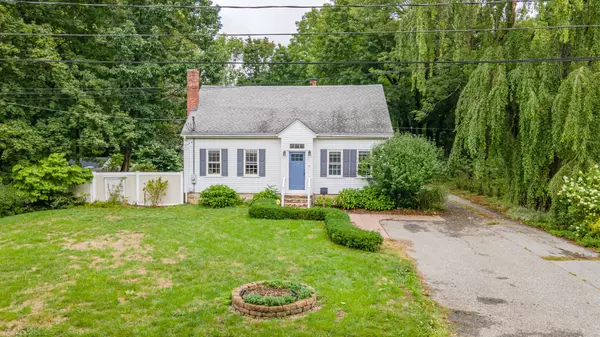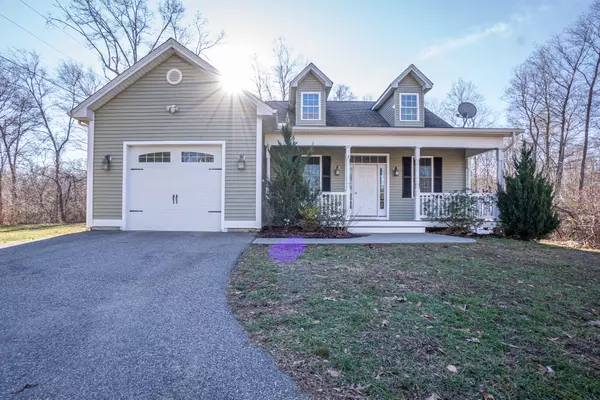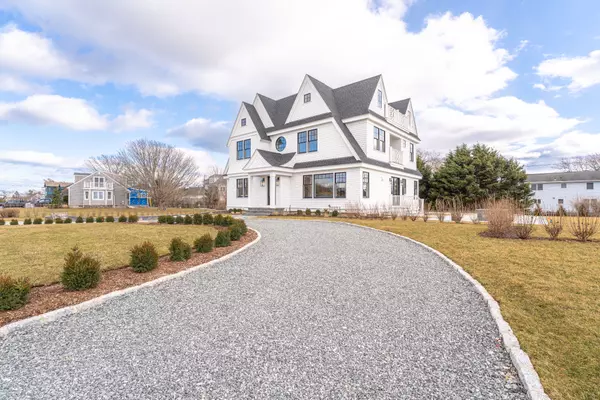-

Winning a bidding war on a home can be challenging, but with a strategic approach and careful planning, you can improve your chances. Here are some tips to help you succeed: 1. Be Prepared: Get Pre-Approved for a Mortgage: This shows sellers you're a serious and financially capable buyer. It can als
Read More Appraisers and What They Look For

Appraisers play a critical role in the home buying and selling process by determining the fair market value of a property. They consider a wide range of factors when conducting their evaluation. Here's a list of what appraisers typically look for when appraising a property: Property Condition: Appra
Read More-

Home Buying Process Checklist Buying a home can be a complex process, but breaking it down into steps can make it more manageable. Here's a checklist to guide you through the home buying journey: 1. Financial Preparation: Check and improve your credit score if necessary. Determine your budget, inclu
Read More Let's Talk About the Quiet Corner

The northeastern corner of Connecticut, often referred to as the "Quiet Corner," is renowned for several attractive qualities that make it a great place to live and visit: 1. Scenic Beauty: The region is characterized by picturesque landscapes, rolling hills, and charming rural scenery, especially
Read MoreIncrease Home Value for Cheap!

Making strategic home improvements can increase your property's value and potentially provide a good return on investment when it's time to sell. Here are some of the best home improvements to consider: Kitchen Remodel: The kitchen is often considered the heart of a home. Upgrading appliances, count
Read More-

Buying a vacation home can be an exciting and rewarding investment, providing a place for relaxation and potential rental income. Here's a step-by-step guide to help you navigate the process: 1. Determine Your Goals: Consider why you want a vacation home. Is it for personal use, rental income, or a
Read More -

FHA (Federal Housing Administration) loans and conventional loans are two common types of mortgages, each with its own set of characteristics and requirements. Here's a comparison of FHA and conventional loans to help you understand the differences: FHA Loan: Government-Backed: FHA loans are insured
Read More -

Getting preapproved for a home loan is an important first step in the home buying process. It helps you determine how much you can afford and demonstrates to sellers that you're a serious buyer. Here's a step-by-step guide to getting preapproved for a home loan: 1. Check Your Credit Report: Obtain a
Read More Renting vs. Buying: Making the Right Housing Decision

🏡 Renting vs. Buying: Making the Right Housing Decision 🤔 Deciding between renting and buying a home is a major financial and lifestyle choice. Both options have their advantages and considerations, so it's important to evaluate your circumstances and goals. To help you make an informed decision,
Read MoreThe Closing Process in Real Estate: A Comprehensive Overview

🔑 The Closing Process in Real Estate: A Comprehensive Overview 🏡 The closing process is a crucial step in any real estate transaction. It's the final stage where all the necessary paperwork is signed, funds are transferred, and ownership of the property is officially transferred from the seller to
Read MoreTips on Getting Your Buyer's Offers Accepted in a Competitive Real Estate Market

In today's competitive real estate market, getting your buyer's offers accepted can be a challenging task. With limited inventory and multiple competing buyers, it's crucial to stand out from the crowd. To increase your chances of success, here are some valuable tips to help you secure that dream ho
Read MoreCommon Questions Relocation Clients Ask: A Guide to Navigating Your Move

🌎 Common Questions Relocation Clients Ask: A Guide to Navigating Your Move 🤔 Relocating to a new city or even a new country can be both exciting and daunting. As a relocation client, you likely have many questions about the process, the new location, and what to expect. To help you navigate this t
Read MoreCommon Questions Home Sellers Ask: Answers to Guide You Through the Process

🏡 Common Questions Home Sellers Ask: Answers to Guide You Through the Process 🤔 Selling a home can be a complex and emotional process, especially if you're a first-time seller. As you navigate the world of real estate, it's natural to have questions along the way. To help ease your concerns and pr
Read MoreDiscover the Charms: 5 Small Towns in Northeastern CT Worth Exploring

🌆 Discover the Charms: 5 Small Towns in Northeastern CT Worth Exploring 🏞️ Connecticut's northeastern region is home to a collection of charming small towns that offer a perfect blend of history, natural beauty, and a close-knit community. If you're seeking a change of pace or looking to explore l
Read MoreCommon Questions Home Buyers Ask: Your Guide to Finding Your Dream Home

🏡 Common Questions Home Buyers Ask: Your Guide to Finding Your Dream Home 🤔 The journey of buying a home can be exhilarating and sometimes overwhelming, especially if you're a first-time buyer. Throughout the process, you're likely to have a multitude of questions. To help you navigate this exciti
Read MoreEnhance Your Curb Appeal: Why It Matters When Selling Your Home

🏡 Enhance Your Curb Appeal: Why It Matters When Selling Your Home 🌿 When it comes to selling your home, first impressions are crucial. A potential buyer's initial reaction is often based on the curb appeal of the property. That's why investing in your home's exterior appearance is a wise decision.
Read MoreRenovated Colonial Home in Plainfield with Huge Yard and Charming Character

$249,900 3 Beds | 1 Bath | 1,452 SqFt 89 Cranska Road, Plainfield, CT 06354 Under Contract The real estate industry has been booming, and beautiful homes like 89 Cranska Road, Plainfield, CT 06354, are adding more value to it. With a listing price of $249,900, this property offers a beautifully reno
Read MoreBeautifully Upgraded Colonial in Killingly, CT

$549,900 3 Beds | 3 Baths | 2,682 SqFt 1014 Upper Maple Street, Killingly, CT 06241 Coming Soon If you're in search of a stunning colonial home in Killingly, CT, look no further than 1014 Upper Maple Street. This gorgeous property has been beautifully and thoughtfully upgraded, making it the perfect
Read MoreDiscover Your Dream Home at 81 Ridge in Rutland, MA

$549,900 3 Beds | 3 Baths | 2,296 SqFt 81 Ridge, Rutland, MA 01543 Pending As the real estate industry continues to boom, it can feel overwhelming to find the perfect home that checks all your boxes. However, 81 Ridge in Rutland, MA may just be the answer to your house hunting prayers. With a listin
Read MoreModern Maintenance: Your Yearly Home Checklist

Maintaining a home is an ongoing process that requires regular attention. Creating a yearly maintenance schedule can help ensure that important tasks are not overlooked, and can save you money in the long run. Here is a sample yearly maintenance schedule that can help keep your home in top condition
Read More
Categories
Recent Posts










